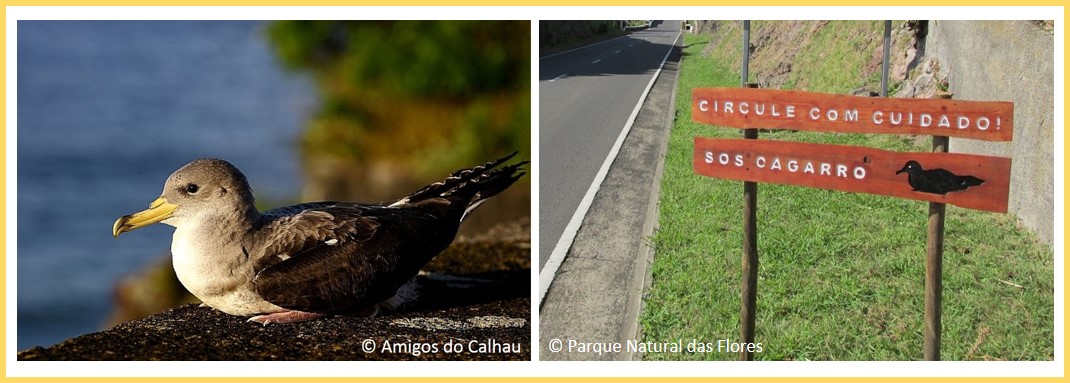The Government of the Azores promotes the SOS Cagarro Campaign annually through the Regional Directorate for Maritime Policies, with support from the Regional Secretariat for the Environment and Climate Change, and the Environmental and Climate Change Services / Island Nature Parks as institutional partners. This campaign primarily aims to raise awareness among the Azorean population about the need to preserve this protected species nesting in the Azores.
Running in the Azores since 1995, this campaign primarily aims to involve the population and local entities in rescuing juvenile Cory’s shearwaters found on or near roads.
Some of the juvenile Cory’s shearwaters rescued in the Azores more than seven years ago have already returned to archipelago to mate and have their young. The SOS Cagarro Campaign runs from October 1 to November 15, coinciding with the departure of juvenile Cory’s shearwaters from their nests for their first ocean flight, and is organized into two main areas: Environmental Education and Nature Conservation.

The SOS Cagarro Campaign
The SOS Cagarro Campaign

Aiming to raise awareness of the proper care to be taken in in cases of collisions and roadkill involving young Cory’s shearwaters, a variety of awareness-raising and environmental education activities are being carried out in schools across the region. In addition, promotional and educational materials are being distributed by the campaign's partners (volunteers, etc.).
At the same time, the Environment and Climate Change/Island Nature Parks Services are promoting and organizing, together with partner entities and collaborators, field brigades to collect young shearwaters and release them the following morning.
How to collaborate with the SOS Cagarro campaign:
- Alert family and friends to the risks of collisions and roadkill involving Cory’s shearwaters during the fall;
- Avoid disturbing, polluting, and destroying seabird nesting habitats;
- Do not allow birds to be captured for bait, food, or pure vandalism, and report any illegal practices to the competent authorities;
- Share what you have learned about seabirds with family and friends contributing to knowledge of the Azores biodiversity.
